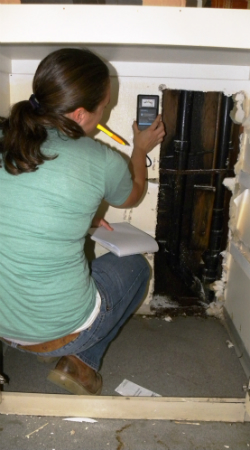Safety and Industrial Hygiene
Safety
The safety department at UCSC is dedicated to the prevention of injuries and illnesses to the campus' employees, students and visitors. We fulfill this mission by providing a wide range of services including ergonomic evaluations of workstations, complaint investigations, safety training, audits of Injury and Illness Prevention Programs, oversight of campus food facilities, and other non-laboratory related occupational safety topics for employees. Our services are free of charge and as close as a mouse click away. To contact the safety department, call or email Christina Lombardo at 459-3915

Industrial Hygiene
EH&S industrial hygiene activities focus on the anticipation, recognition, evaluation, and control of health hazards due to the use of chemical and physical agents, including the evaluation of indoor air quality.
Contact EH&S at 459-2553 or ehs@ucsc.edu for the following industrial hygiene services:
- advice on the toxicity of materials and on substitution of less toxic substances
- evaluation of potential health hazards in the facilities and laboratories by analysis of air and physical samples, detection of lead, arsenic, asbestos, organic solvents, metals, and other materials
- review of ventilation hoods and other exposure control measures
- measurement of exposure to noise levels and heat with recommendations for control measures
- evaluation of indoor air quality concerns, including measurements of carbon dioxide, relative humidity and detectable trace contaminants
- lectures and training sessions on occupational and environmental health issues
- review of research protocols for the safe use of hazardous materials
- services to control hazards during renovations and maintenance, such as asbestos fibers, lead dust, noise and odors
- information, training, and support for compliance with the U.S. Department of Labor Occupational Safety and Health Administration (OSHA) Laboratory Standard (Chemical Hygiene Plans)
- fit testing of proper respiratory protective equipment
- information on proper personal protective equipment for spill clean-up and decontamination procedures
Injury Illness Prevention (IIPP)
